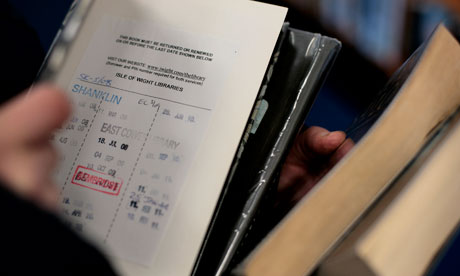David Cameron urged by No 10 newcomer to widen services shakeup
Former KPMG man advocates extension of payment by results, volunteer-run libraries and court budgets determined by success of sentences

David Cameron's radical reform of public services will need to be extended throughout the public sector including tax collection, welfare programmes, magistrates courts and border controls, according to David Kirby, No 10's new head of policy development.
Kirby, who was appointed by Cameron on Friday, is one of the main minds behind a public service reform white paper due in the next fortnight, which the prime minister has hailed as the biggest revolution in the public sector since the 1940s.
He claims it will end a "state monopoly" of public sector services by opening contracts to outside providers.
Kirby set out his blueprint for reform in Payment for success, a paper written last year while he was at professional services company KPMG. He claims an aggressive programme of liberalisation is necessary and shares Cameron's view that payment by results should be introduced right across the public sector "even if there is likely to be a bleeding edge in getting it right".
Kirby proposes "the boundaries between public, private and third sector provision should melt away" and suggests "this empowerment agenda will have to be forced on to public sector organisations in the early stages to break the tendency to structural inertia".
In a vision that will alarm union leaders, and possibly some Liberal Democrats, he says the goal should be to emulate the "disciplined freedoms enjoyed by the private and voluntary sectors in real markets where organisations are financially disciplined by the need to earn their living from paying customers by beating the competition".
He suggests the aim should be to cut costs of all public service providers so they become as efficient as the top 25% most efficient public service providers in order to save 20-30% of the £250bn cost of public services.
He claims responsibility for fixing the deficit can be transferred from the central state to the customer by transferring responsibility for the cost of services via a market to purchasers of public services.
He writes: "It has to be done in a holisitic and systemic way: to cherrypick bits and pieces of the agenda will leave us with the same current public sector reform frustration ...the ideas will require strong political leadership to be put in place, but it will shift decision-making about solving the fiscal problem from Whitehall to the millions of people who produce and consume public services,"He proposes all public service providers should be given almost total freedom to respond effectively to their customers.
Resources for public sector providers would no longer be based on historical or block budgets with resources entirely earned for what is delivered, he suggests.
Kirby believes parents should be given a fixed sum each year to spend on their child's education, which would lead to the closure of failed schools, and says public libraries should be run by unpaid volunteers, as in America, or owned by the community. The productivity of magistrates courts, and their budgets, should in part be determined by the success of their sentencing regime.
In the case of local services – accounting for about 5% or £50bn of all services – funding should be given to local communities without any strings from Whitehall. This would include community safety, environment, leisure, social housing and children's services.
The main residual role of central government, Kirby says, would be to equalise the tax base between areas.


 5:36 AM
5:36 AM
 Wikipedia
Wikipedia

 Posted in:
Posted in: 

0 comments:
Post a Comment